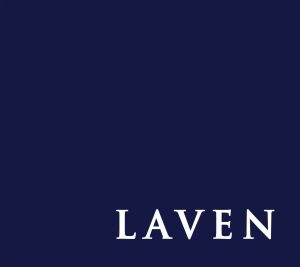Welcome to the seventh edition of the monthly Laven Partners’ Monitoring Update on the proposed AIFM Directive.
The new Directive seeking to regulate hedge funds is charging ahead to become law. Laven Partners provides a monthly update on the development and status of this Directive. In the true Laven Partners style, we also look at any interesting comments made by regulators and leading industry players in relation to the Directive.
Our aim is to involve the financial community and notably to aggregate the representation of investors as we believe the Directive severely reduces their access to investment opportunities. Please register your interest and comments by emailing us at [email protected]. Please feel free to forward our monitoring update to anyone who may be interested.
_____________________________________________________________________________
The theme of the past month has been the handover of the unfinished and delayed AIFM Directive from the European Union’s Swedish Presidency to the Spanish. Independent think tank Open Europe reported that the Swedes failed to reach a “balanced” agreement in the Council of Ministers. Despite a few key amendments and the proposals made by Jean-Paul Gauzès’ report discussed in our last update, a number of outstanding divergences remain, including those related to valuation and remuneration
To date amendments have included proposals to allow for non-EU asset valuators, as well as changes to the reward structures of fund managers. The remuneration policies would be aligned with those suggested for bankers, and details of the packages would need to be disclosed to investors in annual reports. There have also been discussions regarding the definition of depositories; the definition has been widened to include not only credit institutions, but also investment firms.
It is expected that the Spanish Presidency, fronted by the Spanish Finance Minister Elena Salgado, will take a much firmer stance towards hedge fund regulation. Salgado has said that Spanish regulation of hedge funds has traditionally been strict and the proposed EU regulation appears “adequate”. The clear inference is that the Spanish are likely to take a less liberal approach to the Directive and back France and Germany in their attempt to push for a stricter agenda.
The Spanish Presidency is likely to mirror the views of the French government, which is keen to introduce a more rigid regulatory framework for the alternatives industry. There have even been rumours that the Spanish have allied with the French, trying to combine continental efforts in a battle to contain London’s power as the major financial centre in Europe. In December, the founder of hedge fund firm Soros Fund Management LLC, George Soros was quoted saying that continental Europe would like to “see London sink”.
A spokeswoman for the French Permanent Representation to the EU suggested that France would like to strengthen the Directive text. This view was reflected by a UK MEP, who said that “the French are stalling the measure because of Spain’s Socialist government”.
The Ex-Ante Evaluation of the Directive commissioned by the European Parliament and published in December 2009 stated that if the Directive was implemented in its current form, it would lead to the fall of competition and innovation in the alternative sector. Fund managers would be willing to move capital off-shore because of constraints to investment strategy and leverage, as well as the additional costs of complying with the Directive. It is assumed that the majority of AIF structures would be converted to UCITS funds in order to satisfy the regulatory rules of the Directive resulting in more access to the retail investors.
With regard to the cost burden to investors, institutional investors are likely to be most affected by the proposal as it may offer a reduction in choice and lower returns. A group of Dutch pension funds and asset managers recently addressed the European Parliament’s Committee on Economic and Monetary Affairs and suggested that the implementation of the Directive in its current form would annually cost investors around €1.5bn.
The Directive has already received a number of amendments. However, these have been predominantly constructed in draft format. The Spanish Presidency will have responsibility for finalising the proposal and presenting it for a final vote in the European Parliament. The deadline for the MEPs’ amendments is 21st January. It is currently expected that the European Parliament will vote on the Directive in July 2010 and implementation would start in early 2011.
______________________________________________________________________________
Please keep a look out again for our next monthly monitoring update on the EC Directive.




